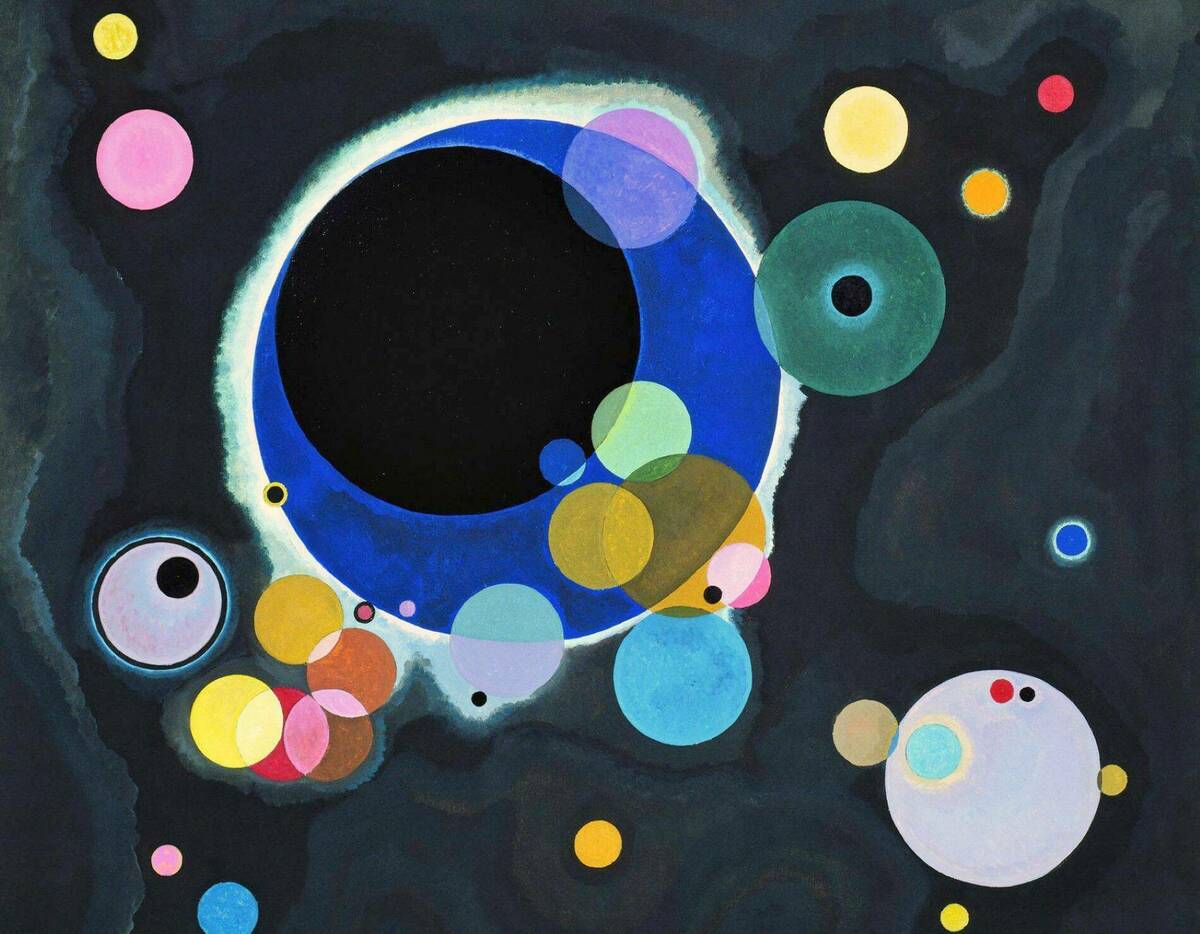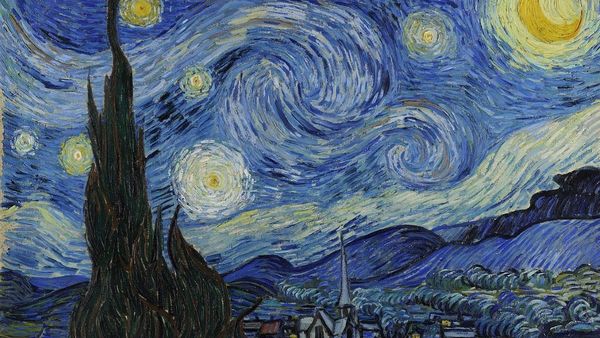Christian theology makes an astonishing claim about our world: creation did not have to be, and yet it is—from nothing. As challenging as it may be for us to imagine, the world we typically take for granted, the only world we actually know, is wholly gratuitous, without necessary existence, and utterly dependent upon an unfathomable God for its very being. While this claim has achieved a formal status in Christian theology—as articulated by the doctrine of creatio ex nihilo, or “creation from nothing”—the scope of its significance for Christian imagination and practice is not sufficiently understood.
The central question that interests me is this: What difference does “nothing” make? What does the sheer gratuity of creation mean for our understanding of God? What does it imply about God’s intention for creation, for creaturely flourishing amid the impermanence and interdependence of all things? How did this understanding of creation arise within the Christian tradition in the first place, and what role does scriptural testimony play in its subsequent theological development? What does creatio ex nihilo imply for our understanding of human-divine interaction? Is it primarily about cosmic origins, or does it also suggest a certain manner of social critique and communal aspiration? How might “creation from nothing” be relevant for addressing the late-modern mood of nihilism, or the sense that “nothing matters”? And, finally, how might this doctrine become a practical and contemplative insight that we can skillfully embody in everyday life?
The basic argument that I wish to develop is that creatio ex nihilo is not a speculative doctrine referring to cosmic origins but a foundational insight into the very nature of the God-world relation, one whose implications extend throughout the full spectrum of Christian imagination and practice. In this sense it serves a grammatical role: it gives orientation and scope to all Christian speech about the God-world relation. It does this by, among other things, characterizing that relationship in noncontrastive terms. God and world do not compete with each other within a spectrum of being. Rather, God is the source and ground of creation’s contingent being, its inmost possibility and animating impulse. Creation comes “to be” precisely in and through God’s gratuitous act, which means that the more creation truly is, the more it reflects its ontological dependence on the Creator.
This is how the privative “from nothing” basically functions. It does not refer to “nothing” as a special kind of “something,” as though God creates out of a prior potentiality or cocreative principle. It does not refer to a source alongside God, a numinous force, or some kind of lack in God that creation appears to fulfill. Such speculative approaches, sometimes found in the tradition, may arouse a certain fascination or sense of drama around God’s creative act, but usually by attributing some kind of mysterious quality or minimal content to “nothing,” when in fact the doctrine denies even this. To this extent, the doctrine of creatio ex nihilo functions as a piece of negative theology, not because it means to be obscure, but because it means to remove any concept, intuition, or principle that might mediate between “something” and “nothing.” No extradivine necessity is at work in God’s creative act, no outside condition is met, no primeval chaos is overcome, no ontological scarcity or unconscious striving in God is satisfied in bringing all things “to be.” The difference between there being anything at all, rather than nothing, is absolute—traversable only by the gratuitous act of the Absolute God.
While this noncontrastive relationship can be stated in formal terms, the main burden of the argument is to explore the positive content of this relationship, its dynamism and living texture, as well as its more radical implications. Within a Christian theological context, this exploration will be Christological in shape, in the sense that Jesus’s life, death, and resurrection concretely display the God-creation relationship with maximal clarity and salvific import. It is maximally clear because in Christ the creaturely and the divine are united “hypostatically,” in one person. It is salvific because it unveils and transforms the deep-seated ways the God-creation relation has become misconstrued or disordered on account of human sin. Human desire, which is originally good and participative of divine life, is susceptible to rivalry, conflict, and violence, and this susceptibility can lead us to cast the God-world relation in contrastive, even agonistic terms. God is thus seen as over against the world, or perhaps associated with a sacral violence underwriting conflict in human relations.
Among the most remarkable features of Christ’s life, death, and resurrection is that precisely in the midst of a human failing—a brutal execution—God is revealed as having nothing to do with our violence. But more, God is revealed as the One whose self-emptying love enters into the depths of rivalry, conflict, and violence in order to overcome them. This overcoming is not the deployment of an even greater force but, paradoxically, the victory of an inexhaustible and efficacious vulnerability that exposes the roots of conflict and violence. This exposure is simultaneous with the communication of a pacific, pardoning, and divinizing presence. From the perspective of the risen victim, which is one way to characterize the peculiar density of the Easter event, we can begin to envision creation anew, as though for the first time, and perceive with unprecedented clarity that creation is originally given “to be” out of unconditioned goodness and love. Its origin is agapeic, not conflictual, and the God-world relation, so far from a matter of competition or rivalry, is the very site of communion. Creatio ex nihilo, or our coming into existence “from nothing,” is in fact a relation of sheer intimacy with God, and thus our sense of contingency and creaturely poverty, rather than a matter of threat and defensive posturing, can be welcomed and embraced as pure gift, as that which we may freely accept, share with others, and ultimately cherish.
There is a contemplative dimension to this welcoming and embracing of our shared creatureliness. Creation does not have to be, and yet is—gratuitously, freely, wondrously. God summons all things “to be” out of divine freedom, not for God’s sake but for the sake of creation itself, without any mediating obstacle or ulterior motive. Creation is given. But more, it is loved into being. It comes from God. God summons that which is other than God into existence as an expression of God’s own fullness of being and love. Creaturely being is thus primordially received by us. We can never get to something prior to this original gift. We can never get to its back side, so to speak, for it is who and what we are. Our being thus depends upon God, and this ontological dependence is original and without any other ground. This sense of creation’s essential gratuity, if deeply lived into rather than merely thought about, can begin to transform the felt sense of our contingency from one of anxiety-tinged precarity to the welcoming of finitude and our mutual dependence in loving communion.
Contemplative practice invites us to “let go” of our defenses and “live into” our creaturely contingency with progressive freedom and deepest acceptance. This acceptance is truly liberating, for rather than struggling to achieve our identity through reactivity, competition, and acquisitiveness, the contemplative way allows us to recognize that with God—and God alone—we do not have to negotiate our existence with a rival; we can wholly trust and live from the One who loves all things into being ex nihilo. In characteristically paradoxical fashion, the Christian contemplative path is one of purgation unto union, kenosis unto theosis, nothingness unto fullness.
This paradoxical dynamic achieves its greatest realization in the incarnation, it is in light of the incarnation that creatio ex nihilo gains its fullest content. To give some indication of this, we must first recognize that creation “from nothing,” while issuing a certain kind of denial, already implies a positive theological affirmation of enormous consequence. Creation is an act of divine self-bestowal. Creation is not just any other, it turns out, but precisely that “other” whose inmost ground and eschatological horizon is God. While in no way annulling the genuine integrity of the created other, the very nature of this difference is such that God imparts God’s self in establishing it. Creation is just that which comes “to be” when divine life, illimitable in itself, is rendered participable. Because our creatureliness is an act of divine self-donation, our difference from God is in fact the source of our deepest intimacy with God—the event and idiom of God’s kenotic outpouring as well as the event and idiom of our ecstatic openness to God. The God-creation relation is therefore not static or thinglike but dynamic and reverberative, a living “betweenness.” In being constituted by God, creation in all its diversity and emergent possibilities exhibits a vital capacity for God. Creation is the unfolding of this relation.
What we call the incarnation, formally speaking, is that event in which God’s self-communication coincides utterly with the creaturely capacity to respond in freedom and love. God’s kenotic outpouring and creaturely self-transcendence: when these two movements converge in a definitive and unsurpassable way, the very reason for creation—its inner dynamism and eschatological goal—is realized. God’s self-communication, already constitutive of creation itself, reaches its climax in creation through the incarnation. The Word became flesh. God became human. Without ceasing to be God, God became creaturely not in order to expand divine life—as though this were possible—but in order to shepherd creaturely reality into its fullest fruition. This fruition is not something done passively to the creature. Though wholly gracious, it is also the fullest actualization of the creature.
The difference between God and creation is not eliminated in the Christ-event but preserved and brought into maximal unity-in-difference. It is this unity-in-difference that all creation is destined to share, yet it is in Christ that this eschatological promise of creation, issued from “the beginning,” achieves decisive momentum and irrevocable form. The Christ-event reveals the beating heart of the God-creation relation, its systole-diastole movement, and thus the inmost content of creatio ex nihilo really comes to this: we are created in Christ (Eph 2:10). We are created to participate in divine life. God became human so that we might become God, so the patristic axiom goes. Creation and incarnation, though a differentiated historical process, are two aspects of one self-communicating act. Seen retrospectively from the Christ-event, we can say: This is why we were made. This is why we have come “to be.” This is how things “shall be.” This is the difference nothing makes.
EDITORIAL NOTE: This essay is excerpted from The Difference Nothing Makes: Creation, Christ, Contemplation (xi–xviii). It is part of an ongoing collaboration with the University of Notre Dame Press. You can read our excerpts from this collaboration here. All rights reserved.

